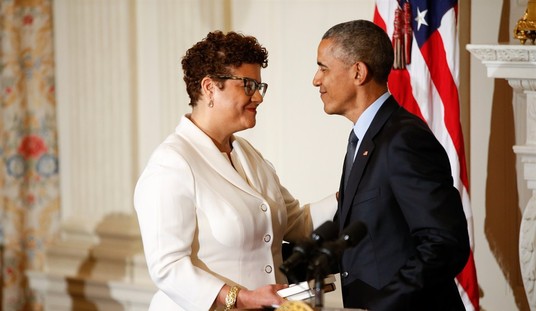This morning’s Gospel reading is Luke 12:13–21:
Someone in the crowd said to Jesus, “Teacher, tell my brother to share the inheritance with me.” He replied to him, “Friend, who appointed me as your judge and arbitrator?” Then he said to the crowd, “Take care to guard against all greed, for though one may be rich, one’s life does not consist of possessions.”
Then he told them a parable. “There was a rich man whose land produced a bountiful harvest. He asked himself, ‘What shall I do, for I do not have space to store my harvest?’ And he said, ‘This is what I shall do: I shall tear down my barns and build larger ones. There I shall store all my grain and other goods and I shall say to myself, “Now as for you, you have so many good things stored up for many years, rest, eat, drink, be merry!”’ But God said to him, ‘You fool, this night your life will be demanded of you; and the things you have prepared, to whom will they belong?’ Thus will it be for all who store up treasure for themselves but are not rich in what matters to God.”
Today’s Gospel reading comes right on time for the 302 million of us who didn’t buy the winning MegaMillions ticket that turned out to be worth $1.2 billion. It turns out you can’t take it with you, even if you can keep it for a while here. For that matter, whether you collect a billion dollars or a much more modest amount for the future, you still can’t take it with you when you leave this world and go to the Lord.
This comes as no surprise intellectually, but we struggle with its implications emotionally and spiritually. It certainly is wise to store up for unforeseen circumstances, and perhaps even some of the foreseen ones as well. Unlike in the days of Jesus, we have an expectation of retirement and hope for some comfort during those years. It is quite foolish to squander one’s earnings and leave nothing for unplanned illnesses or infirmity as well as retirement.
Jesus has something else in mind with today’s parable, however. The rich man in this lesson already has plenty of resources available to him for such planning and for a comfortable life. When he comes into more sudden wealth, the rich man’s instinct is to hoard it rather than put it to use for the good of others. In that manner, the wealth he has acquired will be isolated only for his own benefit, which the man proposes to use in hedonistic splurges.
That, however, is not the purpose of the resources, nor is the rich man the creator of that wealth. He is merely the temporal owner of them, and more to the point, a steward of those resources in the moment.
This reminds me of a conversation I once had with a young man about our role in God’s creation. I used the house we owned at the time as an example of our relationship to resources. My wife and I “owned” our house, or at least we did in partnership with a bank, but the house existed before I bought it and it would exist after I sold it.
So what does that mean for my responsibilities for the property? I own it, so I *can* do pretty much whatever I want with it. However, I know that my ownership of that property is temporary; it won’t outlive me, and it might last a lot shorter even than that. Legally I own it, but in a spiritual and moral sense, I am a steward of those resources for the actual Creator and Owner. It would be sinful to some extent to draw all of the value of the property for my own amusement, leaving it a wreck for whomever owned it after I sell it or pass away. My responsibility as steward is to make use of the property as the Owner would want and to ensure that its value passes onto the next steward as best as I possibly can.
When we recognize that relationship to property and resources, it orients our thinking more along the lines of the Lord’s will. The use of those resources for our own worldly pleasures without any effort to put them to some use for the greater good contradicts the Owner’s purpose for those resources. When we do that — when we act as though those resources were created and owned by us rather than stewarded for the Lord — then we put ourselves in His place at the center of the universe.
This is why our first reading from Ecclesiastes laments material goods as “vanity”:
Vanity of vanities, says Qoheleth, vanity of vanities! All things are vanity!
Here is one who has labored with wisdom and knowledge and skill, and yet to another who has not labored over it, he must leave property. This also is vanity and a great misfortune. For what profit comes to man from all the toil and anxiety of heart with which he has labored under the sun? All his days sorrow and grief are his occupation; even at night his mind is not at rest. This also is vanity.
That form of vanity is Original Sin in a nutshell: arrogating to ourselves the role and judgment of the Lord.
Why are our minds clouded with “sorrow and grief” if we assume complete ownership of our material goods? For one thing, they can pass from us quickly, and even wisdom in such matters still brings anxiety and uncertainty. This comes from putting more trust in our material goods than we do in the Lord. This orientation toward the material clouds our judgment and makes us forget that our real mission in this life is to seek salvation and eternal life. Material wealth has its purposes and ignoring those would be irresponsible, but it’s a matter of priority and faith.
Jesus emphasizes this in the moral to his parable. The problem is not the treasure itself but in our relationship with it. If treasure is at the center of our hearts, then we have precluded any room for the Holy Spirit to connect our spiritual lives to eternal life within the Trinity. Rather than stewards, we fashion ourselves into ersatz gods in our own minds, and that eventually leads us to treat others as though their value lies entirely within their material wealth or production.
This also provides more depth for Jesus’ most famous teaching about the wealthy — that it is easier for a camel to pass through the eye of a needle than for a rich man to enter Heaven. It is not the wealth itself that presents the problem, however, but the warping of our hearts around that wealth and the blindness it creates to our true relationship to God’s creation. It is in that recognition of moral and spiritual stewardship that reminds us of our true poverty and the debt we owe to the Lord — and that revelation puts us on the true path of salvation.
So if you’re one of the millions who bought a lottery ticket this week in anticipation of spending “many years” in efforts to ” rest, eat, drink, be merry” only to be disappointed in the outcome, enjoy the good news of Jesus’ teaching. And if you’re the one person who managed to buy the winning ticket, well … enjoy the winnings as its steward and pay close attention to today’s Gospel. Maybe we will all be winners in the end, when it truly counts.
The front-page image is a detail from “Allegory of the Vanity of Earthly Things” by an unknown French master, c.1630s. Currently on display at the Galleria Nazionale d’Arte Antica in Rome. Via Wikimedia Commons.
“Sunday Reflection” is a regular feature, looking at the specific readings used in today’s Mass in Catholic parishes around the world. The reflection represents only my own point of view, intended to help prepare myself for the Lord’s day and perhaps spark a meaningful discussion. Previous Sunday Reflections from the main page can be found here.







Join the conversation as a VIP Member